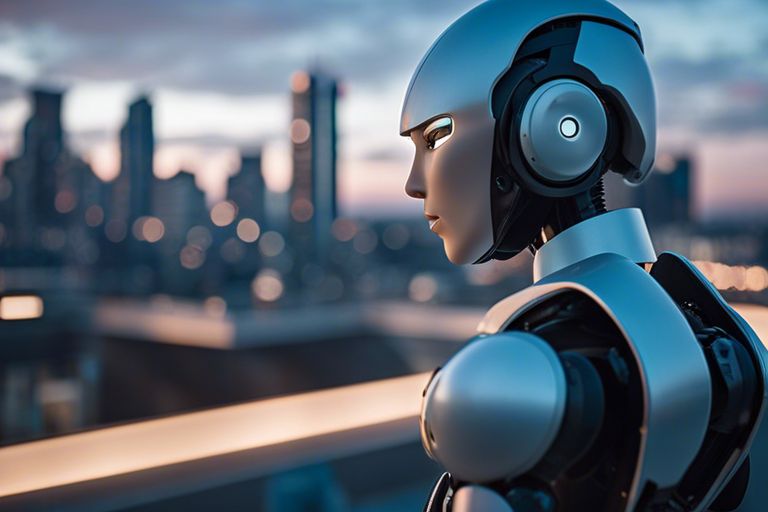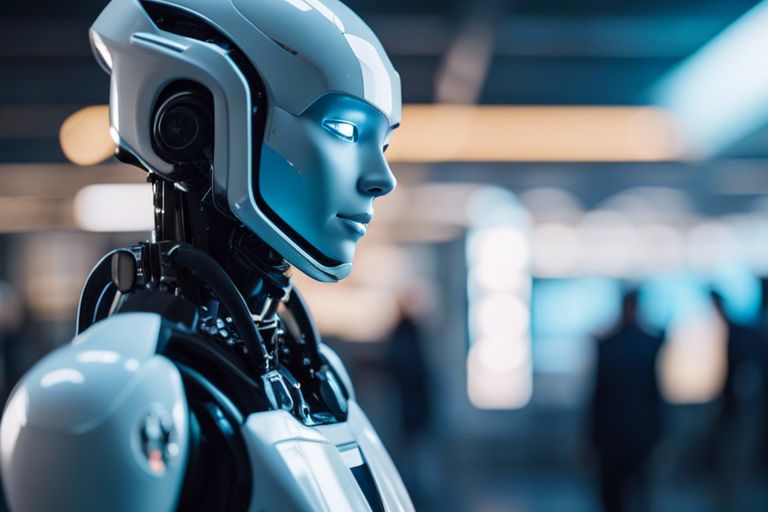What Is Endpoint Protection And Why It’s Critical For Cyber Security
You need to understand that endpoint protection is a vital component of your cyber security strategy. This technology...

AI has revolutionized the way we live and work, and one of its most impactful applications is in robotics. From factories to healthcare, AI-powered robots are transforming industries and reshaping the future of work. In this post, we will explore into the positive and dangerous implications of The Impact of Artificial Intelligence on Robotics on our society, shedding light on the exciting possibilities and potential ethical challenges that come with the rise of robotics.
Some researchers have explored into the historical evolution of robotics to better understand how these machines have come to play such a significant role in society. Exploring the impact of Artificial Intelligence and robots on various industries and daily life has become crucial in the wake of rapid technological advancements.
On the road to modern robotics, early developments can be traced back to ancient times with automata and mechanical devices crafted by early civilizations. However, the true dawn of robotics as we know it today began in the 20th century with the introduction of the first industrial robots in manufacturing settings. These early machines were capable of performing repetitive tasks with precision, revolutionizing the production process.
Advancements in technology led to the development of more sophisticated robots equipped with sensors, actuators, and controllers. The integration of computers and programmable logic controllers allowed for greater flexibility and autonomy in robotic systems, paving the way for the widespread adoption of robotics across various industries.
On the path of innovation, the integration of Artificial Intelligence (AI) with robotics has propelled the field to new heights. AI algorithms provide robots with the ability to learn from their environment, make decisions, and adapt to new situations in real-time. This synergy has led to the emergence of intelligent robots capable of performing complex tasks that were once thought to be exclusively human.
With AI playing a crucial role in enhancing the capabilities of robots, the future holds immense possibilities for the continued advancement of robotics. However, it is important to tread carefully as the convergence of AI and robotics raises ethical concerns regarding autonomy, safety, and the potential impact on the job market. Striking a balance between innovation and responsible development is key to harnessing the full potential of intelligent robots.
Little by little, the integration of robotics into various industries is reshaping the socioeconomic landscape of our society. As artificial intelligence technologies advance, the implications on our job market, ethical considerations, and overall societal structure become increasingly significant.
Robotics is revolutionizing the job market by automating routine tasks, leading to increased efficiency and productivity in many sectors. While this automation can create new job opportunities in fields related to robotics and AI, it also has the potential to displace human workers in traditional roles. As robots become more sophisticated and capable of performing complex tasks, the nature of work and the skills required in the workforce are evolving.
As we witness this transformative shift, it is crucial for policymakers, businesses, and workers to adapt to the changing job market. Upskilling and reskilling programs will be vital to equip individuals with the skills needed to thrive in a technology-driven economy, ensuring a smooth transition in the labor market.
For society to fully embrace the benefits of robotics and AI, ethical considerations must be at the forefront of development. With robots being integrated into various aspects of our lives, questions arise regarding privacy, security, and the potential for bias in AI algorithms. *Robots* must be designed and programmed with ethical principles in mind, ensuring they operate in a manner that aligns with societal values and norms.
To address these ethical concerns, regulatory frameworks and guidelines need to be established to govern the use of robotics and AI. Transparency in how AI systems make decisions and accountability for their actions are vital to build trust and ensure responsible innovation in this rapidly advancing field.

Healthcare has seen a significant transformation with the rise of robotics and artificial intelligence. Robots are being used to assist in surgeries, enhance the accuracy of procedures, and even provide care to patients. This technology is revolutionizing healthcare by improving efficiency, reducing human error, and ultimately saving lives.
Robotics in healthcare has also enabled doctors to remotely monitor patients, automate repetitive tasks such as medication dispensing, and provide therapy. Additionally, AI-powered systems can analyze vast amounts of medical data to assist in diagnosis and treatment decisions, leading to more personalized healthcare solutions.
The manufacturing industry has embraced automation and robotics to streamline processes, increase productivity, and improve overall efficiency. Robots are now commonly used in factories to perform repetitive tasks, handle dangerous materials, and work in hazardous environments. This automation has led to higher production rates, improved quality control, and reduced costs.
The integration of AI and robotics in manufacturing has also resulted in the development of smart factories, where machines communicate with each other to optimize production schedules and make real-time decisions. Robots equipped with sensors and cameras can detect defects in products, ensuring that only high-quality goods are shipped out to consumers.
Not The Impact of Robots on Society can be understated when examining the implications of AI on future societal structures. As AI technology continues to advance, it is reshaping the way our communities and institutions operate, influencing various aspects of our daily lives.
Future urban landscapes will be profoundly impacted by robotics and AI, with the concept of smart cities becoming a reality. These cities will be equipped with interconnected sensors and devices that collect data to improve infrastructure, transportation, and overall quality of life for residents. By incorporating AI algorithms, urban planners can make more informed decisions, leading to efficient resource management and sustainable development.
Robotics in urban planning will revolutionize how we design and build our cities, emphasizing efficiency and sustainability. Through the integration of autonomous vehicles, smart energy systems, and automated waste management, urban areas will become more responsive and adaptive to the needs of their inhabitants.
With the rise of AI and automation, the landscape of education and skill development is undergoing a transformation. Artificial intelligence is revolutionizing the way we learn, with personalized adaptive learning platforms that cater to individual needs and abilities. This technology is reshaping traditional education models, offering more efficient and effective ways to acquire knowledge.
Structures with advanced AI systems have the potential to enhance critical thinking and problem-solving skills among students. By leveraging AI for personalized learning experiences, educational institutions can better prepare individuals for the future workforce, which is increasingly reliant on technological proficiency and adaptability.

Following this exploration of the impact of AI on society, it is evident that robotics is rapidly reshaping various aspects of our lives. From revolutionizing industries to changing the way we work and interact with technology, the rise of robotics is a phenomenon that cannot be ignored. As we continue to embrace and integrate AI into our daily lives, it is crucial to remain vigilant about the ethical implications and ensure that advancements in technology benefit society as a whole. With careful consideration and oversight, we can harness the power of robotics to create a more efficient, innovative, and inclusive future for all.
A: The impact of AI on society is vast and multifaceted. It has transformed industries, automated tasks, and revolutionized how we live and work. AI has the potential to improve efficiency, increase productivity, and create new opportunities. However, it also raises concerns about job displacement, privacy, and ethical considerations.
A: Robotics are changing the workforce by automating routine and repetitive tasks, which can lead to increased efficiency and cost savings for businesses. However, this can also result in job displacement for workers who are replaced by robots. To adapt to this shift, it is important for workers to develop skills that are in demand in an increasingly automated world.
A: Ethical considerations surrounding the rise of robotics and AI include issues such as data privacy, bias in algorithms, and the potential misuse of AI technology. It is important for developers, businesses, and policymakers to address these concerns and ensure that AI is used responsibly and ethically to benefit society as a whole.
You need to understand that endpoint protection is a vital component of your cyber security strategy. This technology...
You rely on robust cybersecurity measures to protect your business from evolving threats, and Endpoint Detection and...